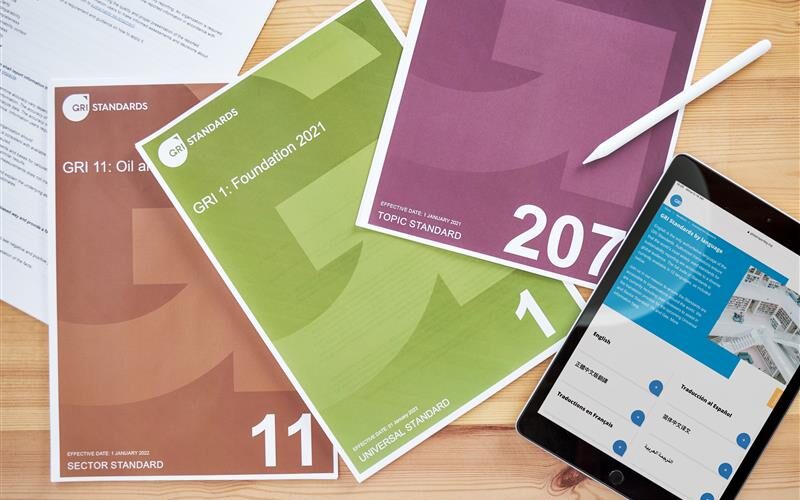Sustainability reporting has firmly established itself as a standard practice among major companies worldwide, with 90% of reporting organisations opting for the Global Reporting Initiative (GRI) Standards, according to the 2024 KPMG Survey of Sustainability Reporting. The survey, which examined the reporting practices of 5,800 companies across 58 countries, found that GRI adoption has increased to 71%, up three percentage points from 2022. Among the world’s 250 largest multinationals (G250), GRI usage remains steady at 77%.
The survey revealed that GRI Standards are the most widely used reporting framework across all global regions. Adoption rates are particularly high in Asia-Pacific (75%), Europe (71%), the Americas (70%), and the Middle East & Africa (64%). Leading countries include Taiwan, where adoption is at 100%, followed by Singapore (97%), and Spain, Japan, and South Korea (94%). These findings underscore the global reach and relevance of GRI Standards in corporate sustainability reporting.
In addition to widespread adoption, the survey highlighted an increase in independent sustainability assurance. Currently, 54% of N100 companies and 69% of G250 companies obtain assurance for their sustainability reports, reinforcing the credibility of GRI-aligned disclosures. The growing use of “double materiality” assessments, now conducted by half of the G250, also indicates a stronger focus on disclosing socio-environmental impacts alongside financial risks and opportunities. While voluntary practices led by GRI remain prevalent, there are early signs of alignment with regulatory frameworks such as the European Sustainability Reporting Standards (ESRS) and the IFRS-S2 standards.
Cristina Gil White, Interim CEO of GRI said, “It is hugely encouraging that a growing number of leading companies around the world – over 70% – are using the GRI Standards. Sustainability reporting is more relevant than ever. Understanding and disclosing material topics is a crucial step in developing a robust sustainability strategy, informing the wider business strategy and, of course, managing risks and unlocking value. It is also clear that the advent of new regulations and disclosure expectations, which the KPMG survey is starting to reflect, will further mainstream the practice of sustainability reporting. The good news for the thousands of GRI reporting companies is that they are well prepared to also apply other standards, and GRI will help them on their disclosure journey.”
These findings align with other recent analyses. Research by the International Federation of Accountants (IFAC) reported a 77% GRI usage rate among 1,400 leading companies, while the WBCSD’s Reporting Matters 2024 study noted an 83% adoption rate among 181 large firms. Moreover, the 2024 Carrots & Sticks report identified 477 global policies referencing GRI, with six mandating compliance and 127 recommending adoption.
















